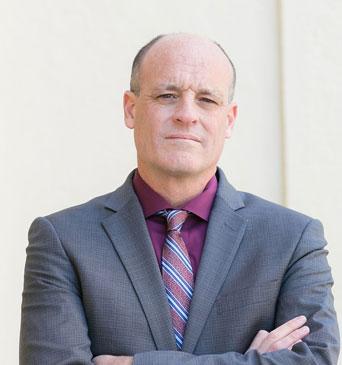confidential & free consultation
confidential & free consultation
Too many women suffer pregnancy discrimination at work in one way or another. If you believe you are in this position, seek help from a California pregnancy discrimination attorney from Mara Law Firm immediately.
Pregnancy discrimination claims typically involve discrimination either during a hiring process, during a person’s pregnancy, or upon returning to work. Under the Pregnancy Discrimination Act of 1978, hiring managers cannot inquire about a person’s pregnancy status or ask whether a person plans on having children in the future.
Even when a person is visibly pregnant during a job interview, a hiring manager or employer cannot take such a factor into account when making a hiring decision. Pregnancy and pregnancy-related medical issues cannot legally affect a person’s search for employment.
Employees are not required to inform employers about their pregnancy unless they require some kind of pregnancy-related benefits, such as special accommodations or maternity leave. In these types of cases, people will need to disclose their pregnancy and possibly provide a doctor’s note to prove their condition.
When a worker is experiencing a high-risk pregnancy or cannot perform certain tasks because of pregnancy-related medical issues, an employer must provide reasonable accommodations. An employer will be obligated to provide a pregnant worker with the same benefits they give to other workers with disabilities or illnesses.
In many states, maternity leave will be the same short-term disability leave provided to all other workers with disabilities, and this leave could be paid or unpaid depending on a pregnant employee’s eligibility under the Federal Family and Medical Leave Act (FMLA). FMLA provides that employers must maintain health insurance benefits for pregnant workers, including coverage for pregnancy, childbirth, and any other pregnancy-related medical issues.
Pregnancy-related harassment is any kind of recurring or severe negative treatment of a woman because of her pregnancy, childbirth, or pregnancy-related health condition. Employers, managers, supervisors, colleagues, and customers can all be considered harassers under the Pregnancy Discrimination Act.
Employers are also prohibited from changing the jobs or roles of pregnant employees, with the only exception being promotions or positions that would be more manageable but involve equal or higher pay. Employees are eligible for FMLA unpaid leave after a year on the job and 1,250 hours of work, with employees being able to use FMLA benefits when their own health is at risk or they need to take care of a child and both parents enjoy the same rights under FMLA to take leave for prenatal care, child care, or a temporary incapacity because of pregnancy.
In addition to the Pregnancy Discrimination Act (PDA) of 1978 and FMLA, California also has a number of state laws protecting pregnant employees. The California Family Rights Act (CFRA) gives eligible employees up to 12 weeks of unpaid, job-protected leave to care for their own serious health condition or a family member with a serious health condition, or to bond with a new child.
Leaving work to bond with a child is allowed under both the CFRA and the FMLA. Employers subject to the CFRA are employers directly employing five or more people, with directly employing meaning that an employer has an aggregate of at least five part or full-time employees on its payroll for every working day during each of 20 or more calendar workweeks in the current or preceding calendar year, and workweeks do not have to be consecutive.
Covered employers will include the state of California and any political and civil subdivisions of city and county governments, regardless of the number of employees. To be eligible for CFRA leave, an employee must be either a full or part-time employee working in California, have more than 12 months (or 52 weeks) of service with the employer, and have worked at least 1,250 hours in the 12-month period before the date the leave begins.
CFRA allows for up to 12 weeks of bonding time with a new child and does not cover pregnancy disability. An employee’s own disability due to pregnancy, childbirth, or related medical conditions will not be a serious health condition under the CFRA.
At the end of an employee’s period of pregnancy disability, or at the end of four months of pregnancy disability leave, whichever occurs first, a CFRA-eligible employee can request to take CFRA leave of up to 12 workweeks because of the birth of her child, if a child is born by this date. FMLA also allows for leave to bond with a new child in addition to leave for pregnancy-related disability, and a maximum of 12 weeks is available in a 12-month period for all FMLA leave purposes with FMLA possibly running concurrently with both Pregnancy Disability Leave (PDL) and CFRA leave.
FMLA grants up to 12 weeks of unpaid leave for serious health conditions, including pregnancy-related disabilities, California’s PDL grants up to four months of unpaid leave for pregnancy-related disabilities, the CFRA grants up to 12 weeks of baby-bonding leave, and the California State Disability Insurance (SDI) program provides up to four weeks of paid leave for a pregnancy-related disability and eight weeks of paid leave for baby-bonding.
Pregnancy discrimination often involves an employer treating a pregnant employee or applicants less favorably than other workers. A person with a pregnancy discrimination claim will have to prove that an employer was subject to California’s state pregnancy discrimination laws or federal laws, the employer treated a person unfairly in some way, the unfair treatment related to a person’s pregnancy in some way, and the person was harmed because of the unfair treatment.
Unfair employment decisions can include an employer firing a person solely on the basis of their pregnancy, but additional examples of pregnancy discrimination can include a person being denied sick leave because they were pregnant, a person receiving new job assignments that involve less pay because of their pregnancy, a person being deprived of training and education that other co-workers receive because they were pregnant, a person being denied health insurance, health benefits, bonuses, or fringe benefits because of their pregnancy, and/or layoffs because a person was pregnant.

The California Fair Employment and Housing Act (FEHA) is the state law that upholds fair treatment of pregnant workers and applies to employers with five or more employees, stating it is unlawful for employers to discriminate against people on the basis of pregnancy and also prohibiting employers, or co-workers, from harassing people on the basis of their pregnancy. Under FEHA, employers are required to provide people disabled by pregnancy with reasonable accommodations such as more frequent breaks to take medications, hydrate, or use the ladies’ room, time off for prenatal care medical appointments, job modifications allowing you to sit more and to avoid dangerous machinery and lifting heavy things, ergonomic furniture, flex time, telecommuting, or other schedule changes, or help with physically taxing duties.
Common kinds of pregnancy-related conditions that could justify a period of leave include morning sickness or hyperemesis gravidarum, preeclampsia, gestational diabetes, hypertension, miscarriage, childbirth recovery, and post-partum depression. An employer does have the right to request a doctor’s note justifying requested accommodations, but they are also obligated to participate in an interactive process to decide the accommodations that will make the most sense.
A pregnancy discrimination demand letter will demand that an employer stop certain discriminatory practices against a person. A person will state that if such practices are stopped, the person will not take further legal action.
If an employer fails to cease discriminating behavior, the letter will inform them that the person may notify authorities and initiate a civil lawsuit. A pregnancy discrimination demand letter is not the same as a California Civil Rights Department (CRD) complaint.
Before a person can file a pregnancy discrimination lawsuit, they must file a complaint with the appropriate government agency. When a pregnancy discrimination claim is based on California law, a person files a complaint with the CRD.
When a claim is based on a violation of federal law, then a person files a complaint with either CRD or the EEOC. The CRD or EEOC will either take no action, in which case a person can file a lawsuit, or they will pursue an action against an employer on a person’s behalf.
The United States Equal Employment Opportunity Commission (EEOC) notes that there have been several major court cases involving pregnancy discrimination in the United States. Equal Employment Opportunity Commission v. Houston Funding II, Ltd., 717 F.3d 425 (5th Cir. 2013) was a case in which the United States Court of Appeals for the Fifth Circuit unanimously held that firing a woman because she is lactating or expressing milk is unlawful sex discrimination under Title VII of the Civil Rights Act of 1964, Latowski v. Northwoods Nursing Ctr., 549 F. App’x 478 (6th Cir. 2013) was a case in which the United States Court of Appeals for the Sixth Circuit and the EEOC argued that a nursing home used its no restrictions policy as a pretext for discriminating on the basis of pregnancy against pregnant nursing assistance, and Equal Emp’t Opportunity Comm’n v. High-Speed Enter., Inc., 833 F. Supp. 2d 1153, 112 Fair. Empl. Prac. Cas. 1478 (D. Ariz. 2011) was a case in which the EEOC sued a Phoenix-area Subway franchise for refusing to hire a woman because she was pregnant.
In April 2020, Walmart Stores Inc. agreed to a $14 million settlement of a proposed nationwide class action lawsuit accusing the company of unlawfully refusing to give pregnant workers accommodations before changing the policy, and the payout to almost 4,000 women in 39 states provided an average award of up to $2,200. In August 2022, the United States Court of Appeals for the Seventh Circuit dismissed an EEOC lawsuit against Walmart, alleging the company discriminated against pregnant workers at a Menomonie, Wisconsin warehouse by denying their requests for restrictions on lifting and other physical tasks, saying the company policy reserving lifting restrictions and other light duty for employees with work-related injuries applied equally to all workers, even pregnant ones.
If you think that you were recently the victim of any kind of pregnancy discrimination in your workplace, you will want to seek the help of California employment attorney David Mara. Our firm handles these types of cases on a contingency fee basis, which means you pay us nothing unless we win or settle your case.

Mara Law Firm is dedicated to protecting the rights of pregnant individuals all over California, and we will work closely with you to help you gather all of the evidence you will need to prove your claim. You may call (619) 648-2550 or contact us online to receive a free confidential consultation.
If you are in need of employment litigation attorney in California or have been injured overseas while under a military contract and are in need of a defense base act attorney. Please fill out the form below and contact us immediately for a FREE consultation.
all fields are required*